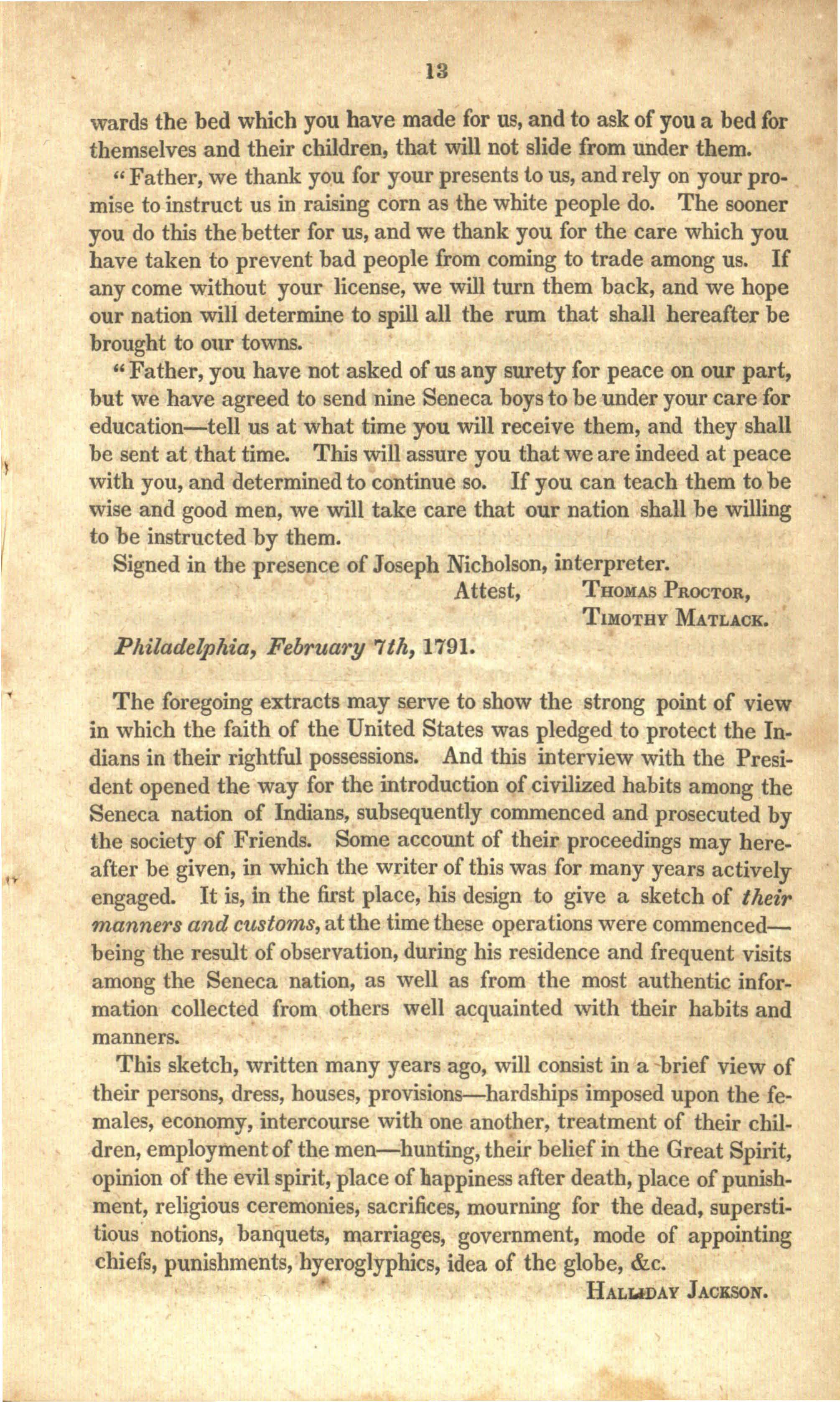wards the bed which you have made
for us, and to ask of you a bed for
themselves and their children,
that will not slide from under them.
Father, we thank you for your presents to us, and rely on your
pro-
mise to instruct us in raising corn as the white people do. The
sooner
you do this the better for us, and we thank you for the care
which you
have taken to prevent bad people from coming to trade
among us. If
any come without your license, we will turn them back,
and we hope
our nation will determine to spill all the rum that
shall hereafter be
brought to our towns.
Father, you have not asked of us any surety for peace on our part,
but we have agreed to send nine Seneca
education - tell us at what time you will receive them, and they shall
be sent at that time. This will assure you that we are indeed at peace
with you, and determined to continue so. If you can teach them to be
wise and good men, we will take care that our nation shall be willing
to be instructed by them. Signed in the presence of Joseph Nicholson
Attest, Thomas Proctor
The foregoing extracts may serve to show the strong point of view
in which
the faith of the United States was pledged to protect the In-
dians in their
rightful possessions. And this interview with the Presi-
dent opened the way
for the introduction of civilized habits among the
Seneca nation
the society of Friends. Some account of their proceedings may here-
after be given, in which the writer of this was for many years actively
engaged. It is, in the first place, his design to give a sketch of their
manners and customs, at the time these operations were commenced -
being the result of observation, during his residence and frequent visits
among the Seneca nation
mation collected from other well acquainted with their habits and
manners.
This sketch, written many years ago, will consist in a brief view of
their
persons, dress, houses, provisions - hardships imposed upon the fe-
males,
economy, intercourse with one another, treatment of their chil-
dren,
employment of the men - hunting, their belief in the Great Spirit,
opinion
of the evil spirit, place of happiness after death, place of punish-
ment,
religious ceremonies, sacrifices, mourning for the dead, supersti-
tious
notions, banquets, marriages, government, mode of appointing
chiefs,
punishments, hyeroglyphics, idea of the globe, &c.

